![Ahmed (Thomas / Grip / Gerbal / Wright): Wood Blues [VINYL 2 LPs] (Astral Spirits) Ahmed (Thomas / Grip / Gerbal / Wright): Wood Blues [VINYL 2 LPs] (Astral Spirits)](https://www.teuthida.com/productImages/misc4/34892.jpg)
A rollicking album of hard blues from the أحمد [Ahmed] quartet of Pat Thomas on piano, Joel Grip on double bass, Antonin Gerbal on drums and Seymour Wright on alto saxophone, performing live in 2022 as part of the Counterflows Festival at The Glue Factory in Glasgow, for a hard driving, upbeat performance in front of an enthusiastic audience.
Out of Stock
Quantity in Basket: None
Log In to use our Wish List
Shipping Weight: 34.00 units
Sample The Album:
Pat Thomas-piano
Joel Grip-double bass
Antonin Gerbal-drums
Seymour Wright-alto saxophone
Click an artist name above to see in-stock items for that artist.
Includes an 8 page 11"x11" insert with an essay and interview with band members.
Label: Astral Spirits
Catalog ID: AS230
Squidco Product Code: 34892
Format: 2 LPs
Condition: New
Released: 2024
Country: USA
Packaging: Double LP in single Sleeve
Recorded live at Counterflows, The Glue Factory, Glasgow, April 2, 2022., by Tim Matthew.
"This album: It swings, hard. As a guaranteed reference I got myself a copy of Count Basie's Atomic, and after careful consideration, I think Would / Wood / Oud Blues can be said to rate as highly as Atomic on the Bassie Swing Metric, whose precision is comparable to the Official NLH Shaka Sirens Metric, on which one B Matic tells us, Jah Shaka's use of sirens on the dub plate of Michael Prophet's 'Gates of Zion', 'weighs in at a hefty 9.2 on the Official Shaka Siren Metric, the highest score ever recorded on YouTube - almost breaking our measuring equipment."-Edward George, London 2023
"On a cold spring night in 2022, the jazz quartet أحمد [Ahmed] set up at one end of the long, narrow warehouse space of Glasgow's industrial-chic Glue Factory. Their muse and namesake Ahmed Abdul-Malik was there in spirit. The setlist consisted of only one song: the late jazz musician's "Oud Blues," which runs to about four minutes in the original 1961 version. By the time أحمد [Ahmed] finished with it, they had been playing for nearly an hour.
Wood Blues is a recording of that phenomenal performance-at once a cover song, an avant-garde improv session, and a driving, swinging jazz concert. أحمد [Ahmed] have been honing the conceit for a decade: Every show, they choose an Abdul-Malik composition and turn it inside out. Pianist Pat Thomas discovered the little-known bassist and oudist in the 1980s and immediately recognized his significance. Born Jonathan Tim, Jr. in Brooklyn to immigrant parents, Abdul-Malik changed his name to assert his Islamic identity and Sudanese lineage. His family was from the Caribbean, not Sudan, but he reached back further, reclaiming his diasporic African heritage. As a bandleader, Abdul-Malik incorporated Arabic instruments-qanun, darbuka, a violin tuned to fourths and fifths-into his ensembles. His late '50s and early '60s albums like Jazz Sahara and East Meets West ushered in the new form of modal jazz alongside landmark recordings by Miles Davis and John Coltrane.
Thomas wanted to revive Abdul-Malik's music, to turn a footnote into a headline. Saxophonist Seymour Wright shared his interest and joined Thomas's trio اسم [ISM], with bassist Joel Grip and drummer Antonin Gerbal, to form أحمد [Ahmed]. Together, they're something of a supergroup, each player a star in a different constellation of the European improvised music scene. They only perform live, with no practice or advance planning. But from their separate cities-Thomas and Wright in London, Grip in Berlin, Gerbal in Paris-they're always thinking about Abdul-Malik. When they play one of his songs, all that thinking comes out in a torrent of sound.
Wood Blues is at once thrillingly violent and fervently faithful in its transformations of Abdul-Malik's material, altering the original beyond recognition yet keeping its spirit alive. The recording begins with the audience chattering as Grip plays the walking bassline of "Oud Blues." Thomas adds melodic piano flourishes and Gerbal lays down a shuffling beat. Wright supports with short percussive clicks from his saxophone, then extends those clicks into bursts, trading licks with Thomas, who bangs on the keys with increasing force. There's a shift in the room as the audience goes quiet. Piano and sax merge into a single pummeling attack. Gerbal keeps time with a steady tom-tom pulse, and Grip carries the melody through the fray. The moment can't last long, and soon the band is propelled by a frantic rhythm, Thomas pounding the piano, Wright blowing with frightening power, the crowd now shouting, screaming, dancing.
The keys to أحمد [Ahmed] are repetition and movement. Everybody plays at once through the whole concert, and everyone repeats themselves. But variations drive the music ineluctably forward. Gerbal and Grip lock into a swinging beat, responding to one another with a sort of ESP honed over more than a decade as a rhythm section. Thomas plays clusters instead of chords, dropping blocks of sound like a hammer on an anvil. Wright offers blasts of notes rather than flowing solos, a message in frenzied, honking Morse code that urges the others onward. By the end of the hour, they've moved through jazz, blues, and discordant free improv to arrive somewhere entirely unfamiliar.
All this leads them into some strange territory on Wood Blues. At times, Thomas turns his hands over and strikes the keyboard with his fists, causing the body of the piano to resonate like a bass drum. On his more daring excursions, Wright makes his saxophone into a vocoder, or a car alarm, or Woody Woodpecker. Gerbal's drums can sound like an avalanche of crockery. Yet somehow the album always grooves, never losing sight of Abdul-Malik's original composition in all the chaos. In the end, this is a celebration of "Oud Blues," not simply an excuse to test their limits.
After the concert, Thomas is spent. Gerbal is soaked in sweat. Grip's hands are bleeding. Wright is unable to speak, with lips and tongue like jelly. Soon each player will head home, not to see one another until it's time to do it all again. But they'll continue to think about this night, and this song, and Ahmed Abdul-Malik, plotting new courses through jazz and its hidden histories."-Matthew Blackwell, Pitchfork Media
Includes an 8 page 11"x11" insert with an essay and interview with band members.
Get additional information at Pitchfork Media
Artist Biographies
• Show Bio for Pat Thomas "Born 27 July 1960; Piano, electronics. Pat Thomas started playing at the age of 8 and studied classical music and played reggae. He began playing jazz at sixteen after seeing Oscar Peterson on television then listened to snatches of jazz on the radio before, in 1979, playing his first serious improvised gigs. From 1986 he played with Ghosts which was Pete McPhail and Matt Lewis. In addition to programming his keyboards, Pat Thomas also utilises prerecorded tapes. He told Chris Blackford (1991), 'As far as the tapes are concerned I'll probably just sit in front of the TV and tape whatever's going on and so some editing afterward to decide what might be useful. ...But I don't actually put a label on each tape saying what's on there, so when I come to use them I don't know what I'm going to be playing. That obviously prevents me from setting things up. I pick them at random and see what happens. So I'm just as surprised as anybody else at what comes out'. In 1988 he was awarded an Arts Council Jazz Bursary to write three new electroacoustic compositions for his ten-piece ensemble, Monads: Roger Turner and Matt Lewis, percussion; Pete McPhail, WX7 wind synthesizer; Neil Palmer, turntables; Phil Minton, voice; Phil Durrant, violin; Marcio Mattos, bass; Jon Corbett, trumpet; Geoff Searle, drum machines. The intention was to feature different aspects of electronics using improvisation so, for example, one piece - Dialogue - featured Pete McPhail and Neil Palmer, another concentrated on the interaction of percussionists and drum machines, and a third piece had Phil Minton and Jon Corbett improvising with a computer. The pieces were performed at the Crawley Outside-In Festival of new music in 1989. Pat Thomas was invited by Derek Bailey to play in Company Week in 1990 and 1991 and he also took part in the Ist International Symposium for Free Improvisation in Bremen with the guitarist. He has been a member of the Tony Oxley Quartet (documented on Incus CD 15) and played in Oxley's Angular Apron along with Larry Stabbins, Manfred Schoof and Sirone at the 8th Ruhr Jazz Meeting and in the percussionist's Celebration Orchestra. He plays with Lol Coxhill in a range of combinations from duo to being a member of 'Before my time', is a member of Mike Cooper's Continental Drift, and he has a well established duo with percussionist Mark Sanders and a trio with Steve Beresford and Francine Luce. In 1992 Pat Thomas formed the quartet Scatter with Phil Minton, Roger Turner and Dave Tucker; funded by the Arts Council they toured the UK in 1993 and again at the beginning of 1997. On the 'Festival circuit', Pat Thomas has appeared at: the Young Improvisors Festival at the Korzo Theatre, Den Haag (with Jim O'Rourke, Mats Gustafsson and Alexander Frangenheim); Angelica 95 in Bologna, Italy; the Stuttgart 5th Festival of Improvised Music 96 (with Fred Frith, Shelly Hirsch, Carlos Zingaro and others); and the 3rd International Festival 96 in Budapest (with Evan Parker, Phil Minton, John Russell and Roger Turner). ^ Hide Bio for Pat Thomas • Show Bio for Joel Grip "For a number of years now, energetic double bassist, filmmaker and producer Grip has played an important role for the new scenes of improvised music in Europe. As founder of Umlaut Records, he opened up for creative forms of organizing collectives of musicians and promoting their music internationally. Since 2003 he has been one of the main organizers of Hagenfesten in Dala-Floda, Sweden, a stand-alone festival, and quite frankly possibly the most pleasant venue for free improvised music not only in Sweden but in the whole of Europe. Few other places offer quite the same endearing combination of sophisticated musical risk-taking, and up-beat, social get-together. Grip’s musicianship is informed by a similar knack for welding musical sophistication with social communication, often with an analog film camera at hand. With a handful of short films Joel Grip met mexican filmmaker Mauricio Hernández and shortly the film production company Umlicht was established. They are right now working on their third and forth feature film together. Umdicht is amplifying the pencil of Joel Grip’s hand, partly through the irregular issue of Lösa Blad and partly in the future release of books." ^ Hide Bio for Joel Grip • Show Bio for Antonin Gerbal "Since the release of File under: Bebop - Peeping Tom in 2009, Antonin Gerbal has developed his own approach of the drums - reinterpreting history of jazz drumming through the prism of european musical improvisation. Improviser, composer, teacher and performer, Antonin Gerbal is associated with the vitality of the Parisian music scene, notably through Umlaut Records. He has performed in Europe, U.S., Russia and Japan, with many original projects such as Nakasanye, Zoor, ISM or Peeping Tom. Involved in large ensembles such as ONCEIM (playing pieces Eliane Radigue or Stephen O'Malley) and Umlaut Big Band (swing dancing band), Antonin Gerbal works regularly with English, German, Swiss and Japanese artists. At the begining of 2016, he releases his solo works called Sound of Drums." ^ Hide Bio for Antonin Gerbal • Show Bio for Seymour Wright "Seymour Wright - saxophonist, investigator, artist - lives in London. His practice is about the saxophone - music, history and technique - actual and potential; an on-going, rigorous and exhaustive exploration of the instrument. The energy of this learning is applied to various collaborations and contexts to access/share what he has called the 'awkward wealth of investigation'. His work is documented on two widely acclaimed self-released collections Seymour Wright of Derby (2008) and Seymour Writes Back (2015). As well as STEPS, his current collaborations include lll人 (with Daichi Yoshikawa and Paul Abbott), GUO (with Daniel Blumberg) and XT (with Paul Abbott)." ^ Hide Bio for Seymour Wright
7/15/2025
Have a better biography or biography source? Please Contact Us so that we can update this biography.
7/15/2025
Have a better biography or biography source? Please Contact Us so that we can update this biography.
7/15/2025
Have a better biography or biography source? Please Contact Us so that we can update this biography.
7/15/2025
Have a better biography or biography source? Please Contact Us so that we can update this biography.
Track Listing:
SIDE A
1. Wood Blues
SIDE B
1. Wood Blues
SIDE C
1. Wood Blues
SIDE D
1. Wood Blues
Improvised Music
Jazz
Free Improvisation
Jazz & Improvisation Based on Compositions
Quartet Recordings
London & UK Improv & Related Scenes
European Improvisation, Composition and Experimental Forms
Staff Picks & Recommended Items
Recent Releases and Best Sellers
Miva Delete Product Category
Search for other titles on the label:
Astral Spirits.


![Ahmed (Thomas / Grip / Gerbal / Wright): Wood Blues [VINYL 2 LPs] (Astral Spirits) Ahmed (Thomas / Grip / Gerbal / Wright): Wood Blues [VINYL 2 LPs] (Astral Spirits)](https://www.teuthida.com/productImages/full/34892.Full.jpg)

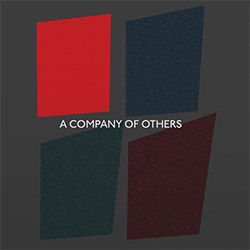
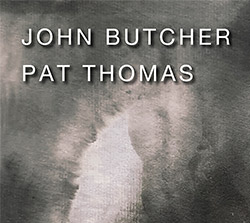
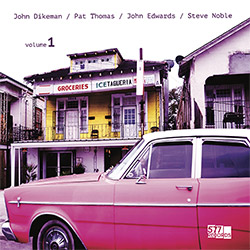
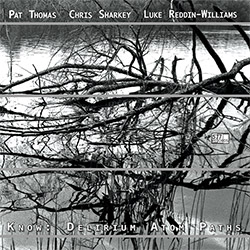
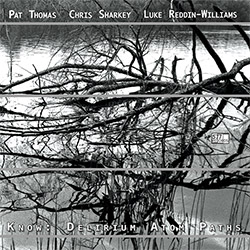
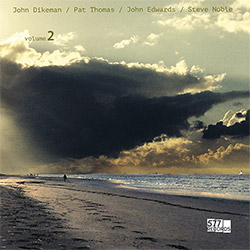
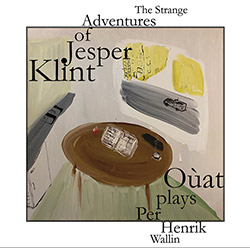
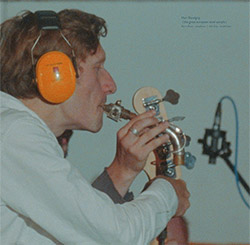

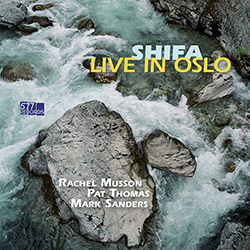
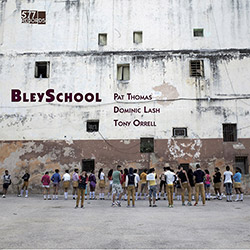
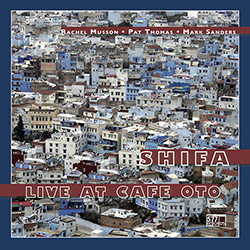
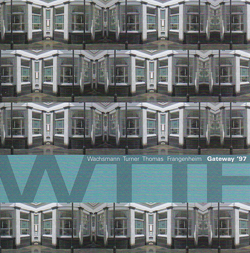
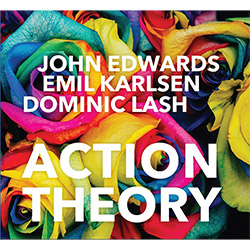

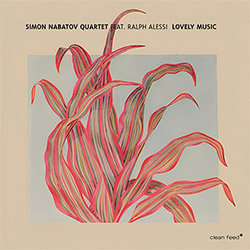

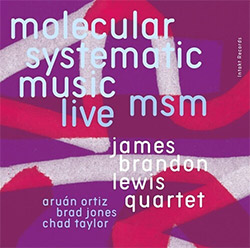
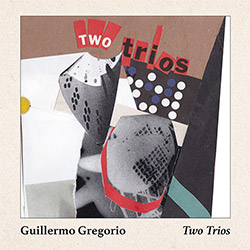
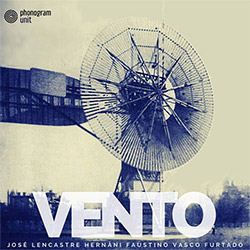
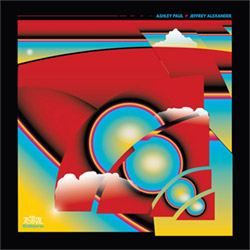
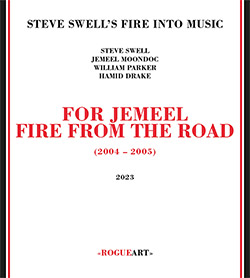
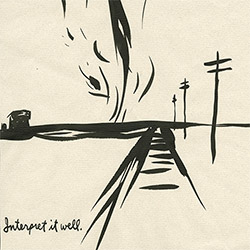




![BlueRing Improvisers: Materia [2 CDs]](https://www.teuthida.com/productImages/misc4/36513.jpg)








![Wheelhouse (Rempis / Adasiewicz / McBride): House And Home [VINYL]](https://www.teuthida.com/productImages/misc4/36462.jpg)
![+DOG+: The Light Of Our Lives [2 CDs]](https://www.teuthida.com/productImages/misc4/36009.jpg)


![Parker, Evan / Jean-Marc Foussat: Insolence [VINYL]](https://www.teuthida.com/productImages/misc4/36398.jpg)










![Deupree, Jerome / Sylvie Courvoisier / Lester St. Louis / Joe Morris: Canyon [2 CDs]](https://www.teuthida.com/productImages/misc4/36404.jpg)



![Eventless Plot | Haarvol: The Subliminal Paths [CASSETTE + DOWNLOAD]](https://www.teuthida.com/productImages/misc4/36232.jpg)










![Eventless Plot | Francesco Covarino: Methexis [CASSETTE + DOWNLOAD]](https://www.teuthida.com/productImages/misc4/36231.jpg)



![Das B (Mazen Kerbaj / Mike Majkowski / Magda Mayas / Tony Buck): Love [VINYL]](https://www.teuthida.com/productImages/misc4/36329.jpg)


![Eternities: Rides Again [CASSETTE]](https://www.teuthida.com/productImages/misc4/36247.jpg)
![Lopez, Francisco: Untitled (2021-2022) [2 CDs]](https://www.teuthida.com/productImages/misc4/36438.jpg)






![Money : Money 2 [2 CDs]](https://www.teuthida.com/productImages/misc4/35894.jpg)




![Klinga, Erik: Elusive Shimmer [VINYL]](https://www.teuthida.com/productImages/misc4/36258.jpg)
![CHANGES TO blind (Phil Zampino): Volume 9 - I Wave on a Fine Vile Mist [CD + DOWNLOAD]](https://www.teuthida.com/productImages/misc4/36061.jpg)

![Wallmart / Rubbish: Asset Protection [split CD]](https://www.teuthida.com/productImages/misc4/35900.jpg)


![+Dog+: The Family Music Book Vol. 5 [2 CDs]](https://www.teuthida.com/productImages/misc4/35897.jpg)
![Kuvveti, Deli : Kuslar Soyledi [CASSETTE w/ DOWNLOAD]](https://www.teuthida.com/productImages/misc4/36107.jpg)

![Brown, Dan / Dan Reynolds: Live At The Grange Hall [unauthorized][CASSETTE]](https://www.teuthida.com/productImages/misc4/36245.jpg)








![Palestine, Charlemagne / Seppe Gebruers: Beyondddddd The Notessssss [VINYL]](https://www.teuthida.com/productImages/misc4/36206.jpg)
![Palestine, Charlemagne / Seppe Gebruers: Beyondddddd The Notessssss [NEON GREEN VINYL]](https://www.teuthida.com/productImages/misc4/36207.jpg)

![Laubrock, Ingrid: Purposing The Air [2 CDs]](https://www.teuthida.com/productImages/misc4/35639.jpg)

![Yoko, Ono / The Great Learning Orchestra: Selected Recordings From Grapefruit [2 CDs]](https://www.teuthida.com/productImages/misc4/35841.jpg)









![Zorn, John / JACK Quartet: The Complete String Quartets [2 CDs]](https://www.teuthida.com/productImages/misc4/35609.jpg)

![Lonsdale, Eden: Dawnings [2 CDs]](https://www.teuthida.com/productImages/misc4/35480.jpg)



![Sorry For Laughing (G. Whitlow / M. Bates / Dave-Id / E. Ka-Spel): Rain Flowers [2 CDS]](https://www.teuthida.com/productImages/misc4/35985.jpg)

![Rolando, Tommaso / Andy Moor : Biscotti [CASSETTE w/ DOWNLOADS]](https://www.teuthida.com/productImages/misc4/36106.jpg)


![Electric Bird Noise / Derek Roddy: 8-10-22 [CD EP]](https://www.teuthida.com/productImages/misc4/35970.jpg)








![Elephant9 : Mythical River [VINYL]](https://www.teuthida.com/productImages/misc4/34624.jpg)



![Elephant9 with Terje Rypdal: Catching Fire [VINYL 2 LPs]](https://www.teuthida.com/productImages/misc4/35355.jpg)
![Deerlady (Obomsawin, Mali / Magdalena Abrego): Greatest Hits [VINYL]](https://www.teuthida.com/productImages/misc4/34876.jpg)







![Surplus 1980: Illusion of Consistency [CD]](https://www.teuthida.com/productImages/misc4/35069.jpg)
![Staiano, Moe: Away Towards the Light [VINYL + DOWNLOAD]](https://www.teuthida.com/productImages/misc4/35037.jpg)
![Coley, Byron: Dating Tips for Touring Bands [VINYL]](https://www.teuthida.com/productImages/misc4/17906.jpg)

![Lost Kisses: My Life is Sad & Funny [DVD]](https://www.teuthida.com/productImages/misc4/lostKissesDVD.jpg)